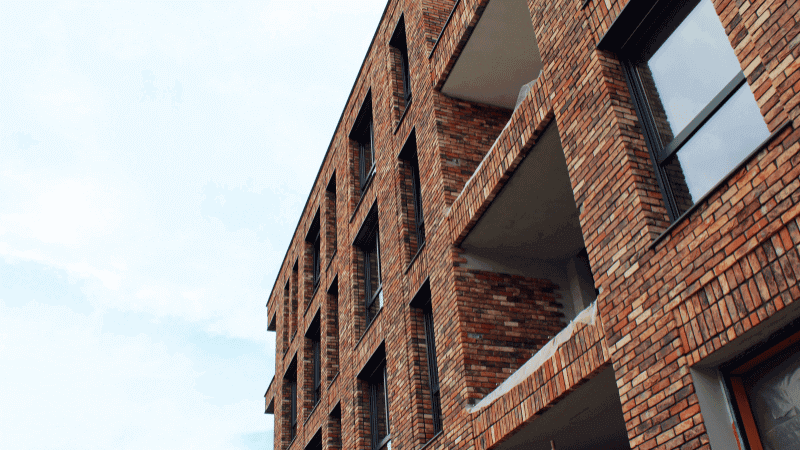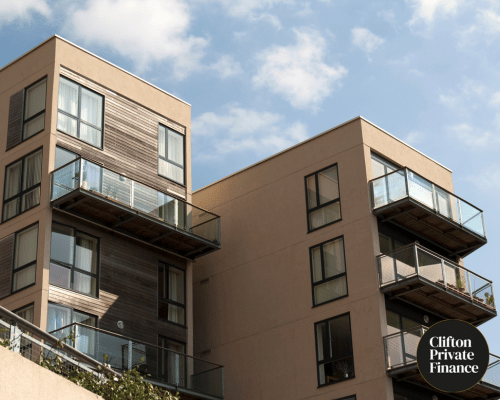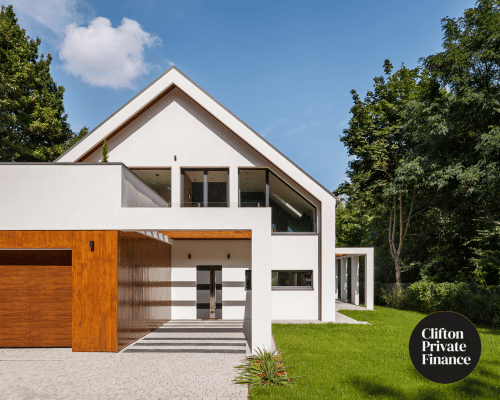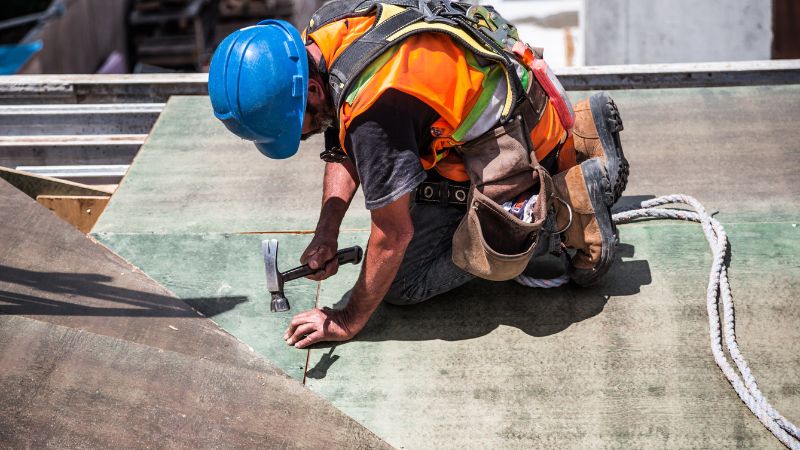Categories
Unlocking Opportunities with 100% Development Finance

100% development finance can play a pivotal role in bringing ambitious property projects to life. It can provide the necessary capital for developers to acquire land and finance construction.
Is it possible to find a lender willing to finance 100% development costs?
Yes, but only if you:
- You already have some significant equity in the project, taking the overall GDLTV down
- Or you have other assets in the background you can use as security (land or property, for example)
If you're looking to fund 100% of a new project with no equity to put forward yourself, it's not possible - it's just too risky for lenders.
That being said, understanding the potential limits can open possibilities, which is where we can help. Speak to an advisor today to find out the maximum you could borrow for your project and explore your options across the market.
Get Development Finance Quotes »
Skip to:
What is 100% Development Finance?
Benefits of 100% Development Finance for Property Projects
Cost Structure of 100% Development Finance
What are the Eligibility Requirements for 100% Development Finance?
Strategies for managing financial risks in 100% development finance
Need Help Getting 100% Development Finance?
What is 100% Development Finance?
Development finance is simply a financing option for property development. 100% development finance, also referred to as joint venture development finance, allows developers to undertake projects without using their capital.
Instead, the lender provides all the funds required for the project, enabling developers to move forward with less financial constraints. The profits generated from the project are typically shared between the developer and the lender upon the property's sale.
It can be particularly beneficial for developers with limited resources or those seeking to optimise their financial flexibility.
Benefits of 100% Development Finance for Property Projects
100% Development Finance offers significant advantages for property developers. By eliminating the need for personal capital and partnering with lenders, developers gain access to funding, accelerate project timelines, share risks, and capitalise on joint ventures.
Access to Funding
This type of property development finance provides developers with the necessary capital to initiate and complete their projects, enabling them to pursue otherwise financially challenging opportunities.
Streamlined Project Execution
External funding eliminates delays caused by arranging personal finances, allowing developers to proceed rapidly with their projects. This agility helps seize time-sensitive opportunities in the real estate market.
Risk Mitigation through Profit Sharing
The profit-sharing aspect of 100% Development Finance aligns the interests of developers and lenders, fostering collaboration and sharing risks. Lenders are vested in the project's success, promoting a mutually beneficial partnership.
Joint Venture Potential
A joint venture with the lender is expected in 100% Development Finance. This partnership brings valuable expertise, industry connections, and market knowledge. Joint ventures maximise project success and profitability through shared resources and shared risk.
Preservation of Personal Capital
Developers preserve their capital for other investment opportunities or future projects by utilising external financing rather than personal funds.
This flexibility allows for portfolio diversification and the potential to pursue multiple projects.
See similar: Airspace Development Loans
Latest property development finance rates we've secured:
Finance Rates from 1 - 18 months Rates up to 80% LTV net As at 17th January 2025 Finance Rates from Up to 24 months Rates up to 70% of GDV As at 17th January 2025 Finance Rates from 1 to 18 months Rates up to 80% LTV net As at 17th January 2025 Thank You for your interest - please complete the form below and a member of our team will be in contact.Flipping Property?
Buying, Renovating & Selling (or Letting)
0.55% pm
Ground Up Development
New Builds
0.83% pm
Existing Development?
Refinance & Exit Finance
0.55% pm
Contact Us
Get Development Finance Quotes »
Cost Structure of 100% Development Finance
There are quite a few costs involved with development finance. The loan amount you can obtain will depend on the feasibility of your project and the assessment made by the lender.
It is essential to consider that interest rates for 100% development finance can vary based on factors such as the lender, the level of risk associated with the project, and the market conditions.
To ensure you get the most favourable terms, comparing development finance rates from different lenders is advisable. A specialist finance broker will have the best knowledge of lending options and will have relationships with private lenders who you may not otherwise have access to.
Get Development Finance Quotes »
There are also other fees to consider as well as interest rates. These could include arrangement, valuation, legal, and administrative fees. Understanding these costs and incorporating them into your financial planning for the project is crucial.
Additionally, it's worth noting that some lenders may impose exit fees if you choose to repay the loan before the agreed-upon term. It is important to carefully review the loan agreement to assess the potential impact of exit fees on the financial viability of your project.
-
Fixed vs Variable Interest Rates - Choose between stable fixed rates and variable rates that fluctuate based on market conditions. Consider the impact on your project's cash flow and your risk tolerance.
- Upfront Fees - Lenders may charge application or commitment fees upfront. Understand these non-refundable fees before choosing a lender for 100% development finance.
- Professional Services - Engaging professionals like solicitors, architects, and surveyors adds to the overall cost. Include their fees in your financial planning for 100% development finance.
-
Contingency Fund - Set aside a contingency fund for unexpected expenses or delays during development. This financial buffer helps mitigate risks and ensures smooth project progression.
Get Development Finance Quotes »
What are the Eligibility Requirements for 100% Development Finance?
The main requirements are:
- You already have some significant equity in the project, taking the overall GDLTV down
- Or you have other assets in the background you can use as security (land or property, for example)
Experience
Even then, 100% Development Finance is typically only available to experienced property developers who have successfully completed similar-scale projects in the past. It may be challenging to secure this level of finance if you’re a new developer or are attempting to finance a smaller-scale project.
Profitability
Lenders assess the viability of a project by evaluating its potential profit margin, often requiring a minimum profit margin of 25% or higher. With 100% development finance, lenders will want to be sure of a profitable venture and a strong return for themselves.
Planning Permission
Full planning permission is a crucial requirement, ensuring the project's compliance with local regulations and minimising planning risks.
Our recent development finance case studies:
Get Development Finance Quotes »
Strategies for Managing Financial Risks in 100% Development Finance
Naturally, securing 100% development finance has its inherent risks. This type of finance will require a strategic and well-thought-out approach before you seek out a lender willing to facilitate the loan. Here are some things to keep in mind:
-
Thorough Project Assessment: Before seeking 100% development finance, conduct a comprehensive feasibility study and risk assessment of your project. Identify potential challenges, assess market demand, and evaluate the project's financial viability.
- Diversify Funding Sources Consider diversifying your funding sources by exploring partnerships, joint ventures, or alternative financing options. By spreading the financial risk, you can reduce reliance on a single lender and enhance your project's resilience. Typically, 100% development finance is not available unless it is through a joint venture.
-
Cash Flow Management: Effective cash flow management is crucial for the successful execution of a development project. Monitor your project's cash flow regularly, anticipate potential shortfalls, and take proactive measures to address any issues promptly. This may involve adjusting timelines, negotiating with contractors, or securing additional funding.
Lastly, it is always advisable to seek the guidance of professionals experienced in development finance.
Need Help Getting 100% Development Finance?
Clifton Private Finance is here to support you if you're seeking a development loan and need assistance finding the right lender.
100% development finance is only possible in rare instances, but we can certainly explore your options for you and offer alternatives if you don't meet the criteria.
With our extensive expertise and knowledge in the development finance market, we may be able to connect you with lenders who meet your specific requirements.
Contact us today at 0117 959 5094 to discover how we can assist you, or book a consultation below.
FAQs
What Types of Projects Can Be Financed with 100% Development Finance?
Types of projects that can be financed with 100% development finance include residential and commercial developments, property renovations, new builds, and land acquisition, as long as the criteria are met.
Can Individuals or Small Businesses Access 100% Development Finance?
Individuals and small businesses can access 100% development finance, and eligibility is determined by evaluating the project feasibility, the borrower's financial strength, and creditworthiness, as mentioned previously.
How Long Does the Approval Process for 100% Development Finance Typically Take?
The approval process for 100% development finance varies among lenders, ranging from a few weeks to a couple of months, depending on factors such as project complexity and the lender's internal procedures.
Are There Any Alternatives to 100% Development Finance?
Alternatives to 100% development finance include traditional bank loans, private investors, joint ventures, and equity partnerships, which may require different levels of equity contribution or collateral.
Can Existing Debts or Credit History Affect Eligibility for 100% Development Finance?
Eligibility for 100% development finance can be affected by existing debts and credit history, as lenders assess the borrower's financial stability and ability to manage debts and credit obligations.
How Does 100% Development Finance Impact Equity and Ownership?
Regarding equity and ownership, 100% development finance allows borrowers to proceed without upfront equity contributions. However, lenders typically secure their investment through property charges or profit-sharing agreements. The specific terms and conditions depend on the lender and the project.











